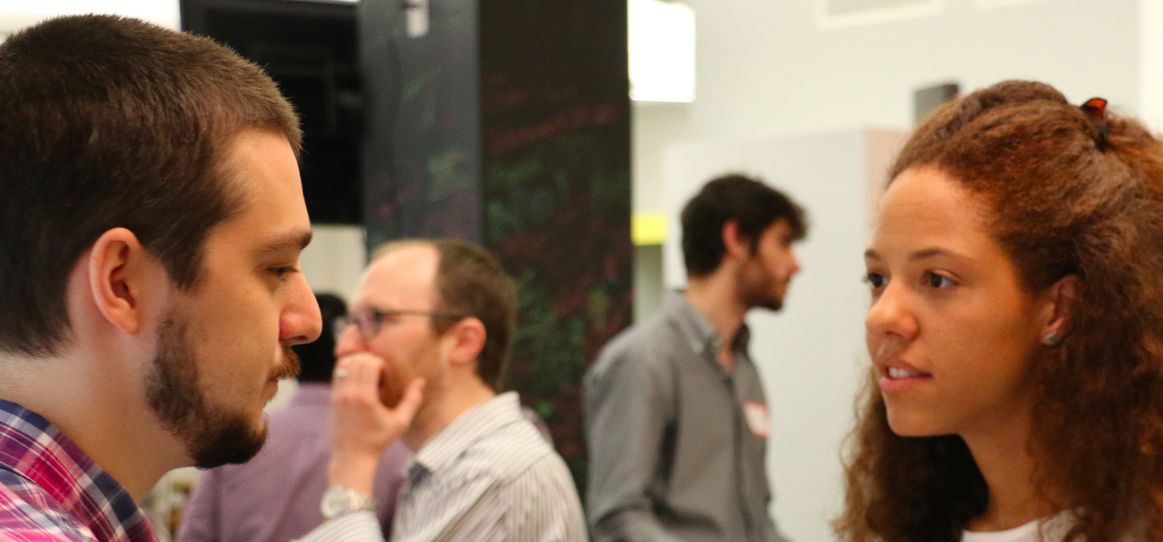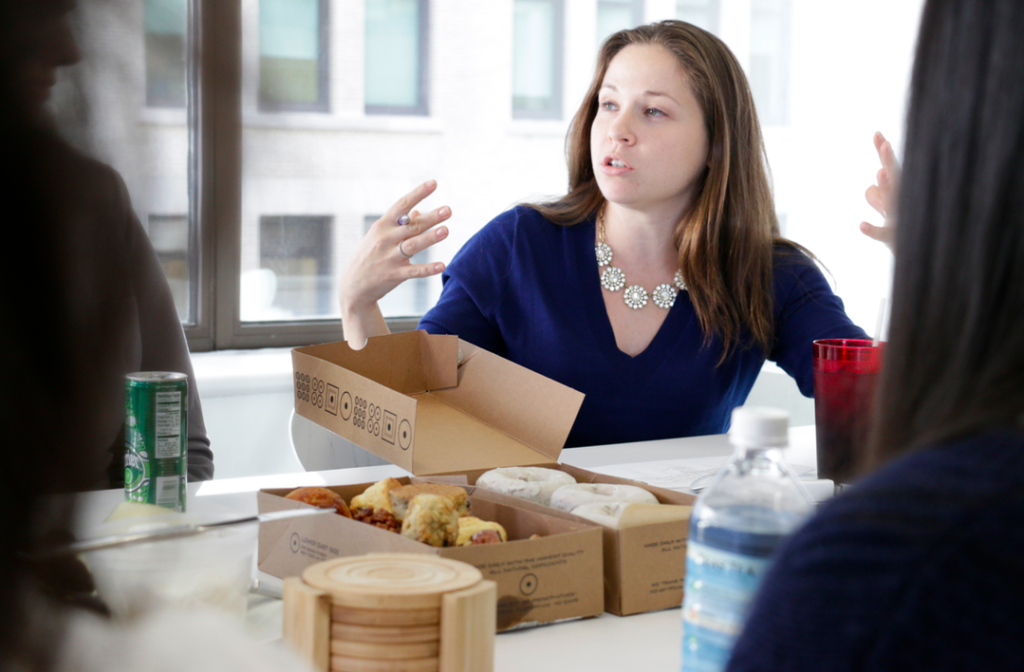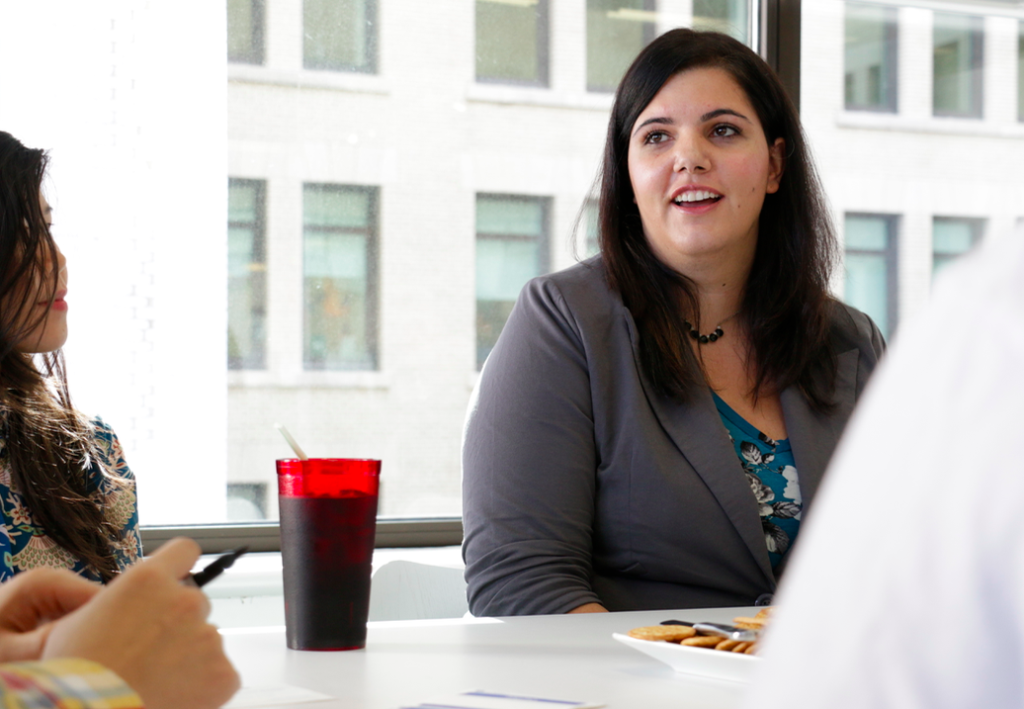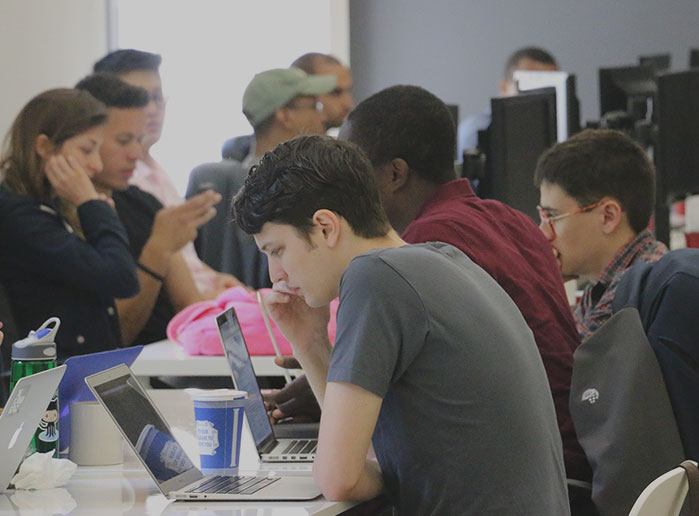In the three years since Flatiron School was founded, its programs have taken special care to curate diversity in tech. Initiatives like the Brooklyn Fellowship and Kode with Karlie have made an outsized impact to include more women, people of color, and low-income students into computer programming spheres.
It seems that investment is starting to pay off in a visible way. According to the data in Flatiron School’s jobs report released this week, the average salary for women who were placed in permanent, full-time jobs after a programming immersive is $510 higher than the average salary.
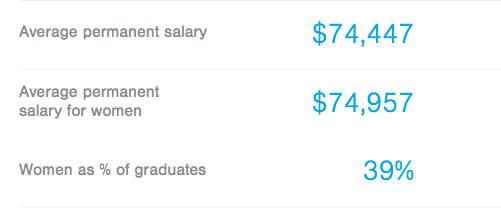
It’s important to pause and acknowledge that this number is not ideal — ideal would be at 50% or higher. It’s also important to note that just because Flatiron School alumnae are making $510 more than the average alumni upon job entry, the wage gap isn’t magically fixed and everyone can go home.
There are still many ceilings to break, many ladders to climb, and many boardrooms to lead. However, this is a visible step in the right direction. This is getting closer to giving women an equitable foothold in tech, and it’s something that needs to be pursued with thoughtfulness and vigor as computer programming continues to gain predominance throughout the world.
Flatiron School is working to get those numbers up to parity. However, it suddenly means a lot more when put into context. Take, for example, the fact that women earn 57% of Bachelors’ degrees, but only 12% of computer science degrees are awarded to women. Flatiron School graduates indicate a 225% increase from the norm.
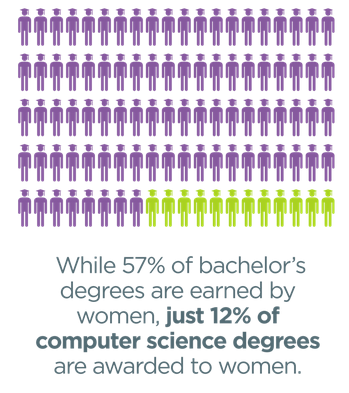
Infographic by code.org
Programming immersives also give women the opportunity to become professional developers in a few months — which helps catch people past their college years who are ready for a meaningful career shift.
As many publications have acknowledged before, recruiting women and getting them into software development roles is not the only crucial step. It’s also about setting up support systems to help integrate women better into traditionally male-dominated spaces. This is where software development companies like Fog Creek partner with immersives like Flatiron School — to set the stage for a conscious change.
The partnership, now in its fourth cycle, offers women a month-long opportunity for mentorship with Fog Creek, Stack Overflow, and Trello software developers. VP of People at Trello, Liz Hall, has been a key player in making that happen. While welcoming new fellows to the Fog Creek offices on October 26, she explained the importance of the program to give the women a boost and prep them for careers in tech.
Liz Hall, VP of People at Trello, holds a welcome brunch on October 26. The attending fellows, all women, are given a four-week long opportunity for mentorship with Fog Creek, Trello, and Stack Overflow’s software developers.
“As an industry, it seems that across the board we’re getting better and more aware about this topic,” Hall said in a separate interview. “But at the end of the day, the numbers and data still show that there’s a lack of women in tech.”
One example of many she cited were employer hiring processes that are still biased towards technical whiteboard interviews. That often entails asking esoteric questions that may have to do with greater computer science programming structures, but focus very little on the real-world skills that developers will be using everyday in their work.
“When you’re a real candidate, you often don’t get that immediate feedback from interview questions. Our fellows get paired with a mentor who has been in the industry for quite some time, doing technical interview prep and real interview questions.”
Nancy Hawa (right), one of the Fog Creek Fellows from Flatiron School, said the mentorship gave her the opportunity to take on an advanced programming project.
Apprenticeship programs like Fog Creek help fill out these recent graduates’ knowledge. By the time they leave, they have real-world experience in an environment that encourages collaboration, mentorship, and positive relationships over cut-throat competition.
“I grew a lot in my confidence during my fellowship, and it was the first big project I was taking on by myself,” said Nancy Hawa, one of the women who recently finished the program.
Over time, as programs like this continue to grow, Flatiron School and the tech world at large hope to see more women not only coming to work in software development, but also coming to stay.
The apprenticeship also worked out well for Nancy Hawa. She just accepted a position at Fog Creek Software as a support engineer — and is starting this week.
All photos by Kristin Hoppe.
Interested in downloading the jobs report? You can do so here.
Written byFLATIRON SCHOOL
Make yourself useful.
